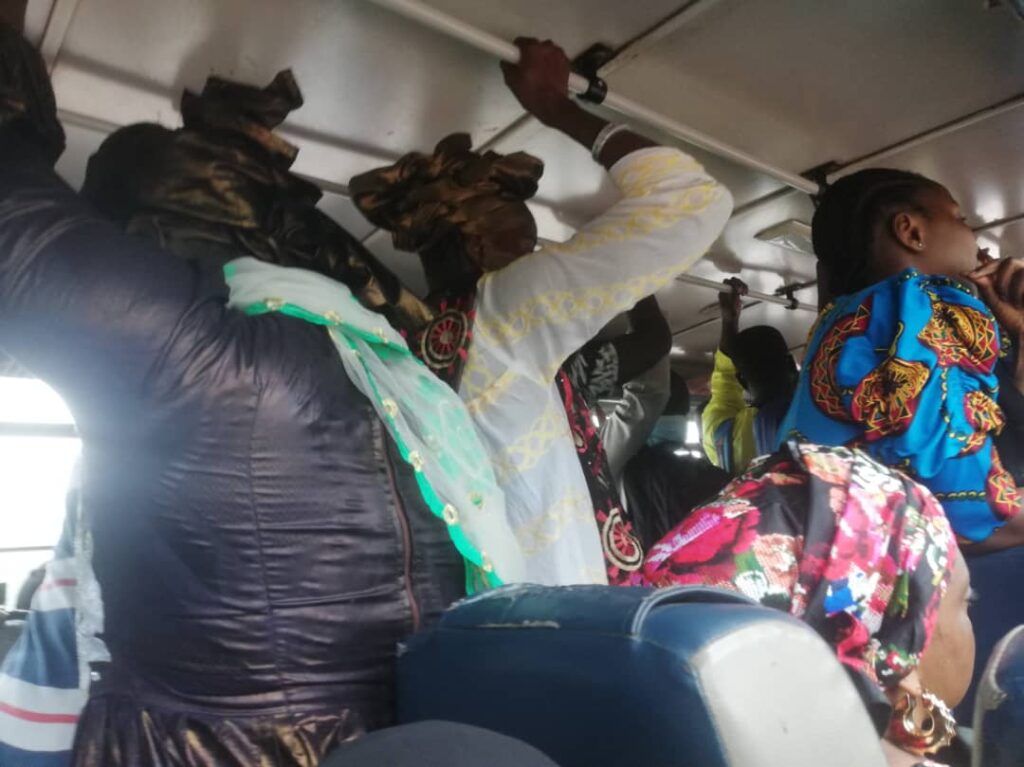If only walking was an option
You haven’t truly lived in Kenya until you’ve found yourself in the middle back seat of a matatu.
If you’ve ever sat there, you already know — that seat is not for the weak.
It all started when I got in. I knew I should’ve just stayed home but no — I had dreams. Bills. Ambition. So here I am, shoved into the back seat of a matatu, living through what I can only describe as a spiritual and physical attack. I’m seated in the very last row — a spot only the brave or the unlucky end up in.
Let me tell you Maina, the seat is meant for three but somehow, we are five. I am in the middle. I cannot move, I can’t feel my legs… or my dignity. I am not breathing voluntarily. My body has accepted its fate.
Now, anyone who has used public transport in Kenya knows this seat wasn’t designed for comfort. No. It was designed by someone who clearly hated knees.
Then Comes the Pastor
And just as I’m wondering how my left thigh is in the aisle and my right elbow is in someone’s handbag…
Boom. The pastor jumps in.
No warning. Just pure fire and Shekinah glory!
He doesn’t care that you’re on 2% battery and zero will to live.
We haven’t even left the stage, but you’re already feeling guilty for sins you haven’t committed yet.
He’s sweating. Shouting. Pacing between seats like he’s in crusade mode. At some point, he starts praying aggressively.
Then, as expected:
“Na kwa sadaka ya kuendeleza injili hii, mbariki mchungaji kwa lolote mnaweza.”
Someone gives ten shillings. Another gives five. I give nothing but eye contact and regret. He leaves.
Enter the Hawker with 12 Jobs
Just as the pastor gets off, a new performer arrives.
“Tropicals, Njugu Maji Biscuits!”
He’s moving through the bus like he’s in a supermarket aisle. Drops a packet of sweets on your lap without consent. If you don’t return it, you’ve accidentally bought it.
And he always has the same strategy:
Sell halfway, then hang around the door, balancing on one foot, waiting for traffic to alight.
But Sir, This Matatu Is Already Full??
Listen. If there’s one thing you’ll learn on Kenyan roads, it’s that a matatu is never full.
You see, from where I’m sitting — back seat, barely breathing — I can see the front. Every seat is taken. The matatu is clearly full, but the conductor is on a mission. He’s got faith. He still calls out.
“Boss, mtu mmoja twende!”
“Brathe! kaa hapo kwa sambaza!”
He eventually sits on the improvised wooden block ‘seat’. He looks like he is sitting on a toilet. The wooden block is placed strategically in the little aisle space between the two seats in the second last row. And I am left wondering how this person sits as if everything is normal and they’re comfortable. No. Their left elbow is touching someone’s kidney. Their right shoulder is brushing someone’s nose. And yet they smile and say, “Ni sawa tu.”.
It is not sawa buana.
But we move.
Now, Let’s Talk About Buses.
Oh, buses are the older cousin of matatus — more polite, but just as shady.
You’ll find yourself standing because all seats are taken. You cling to that metal pole like your last shred of dignity. Then conductor shouts,
“Songea huko nyuma!.”
Where??
If you do get a seat — especially at the back — it’s not better. The bumps hit harder, the air is stuffier, and somehow, the pastor and hawker will still find you.
You Haven’t Suffered Until the Driver Starts Flying
Just when you’ve given up on personal space, the driver hits a pothole that sends you airborne.
Your head bangs the roof. You land back on the seat like a sack of waru. People scream “Dere kwani unataka kutuua”. The ‘turbulence’ sent you tumbling into each other’s laps awkwardly, with throats clearing and quick muttered apologies. If you are standing, you’re gripping that slippery pole like a failed relationship. One minute you’re upright, the next, you’re in someone’s armpit.

Overcrowded bus
But Somehow, You Survive
You finally arrive. Knees aching. Back broken. Trust issues activated. But you made it. And as you alight out of the bus, you realize something:
You just survived another chapter in the beautiful madness of Kenyan public transport.
And guess what?
I’ll be right back here tomorrow. Same seat. Same chaos. Same conductor shouting,
“Watu wa haraka! Watu wa haraka!


